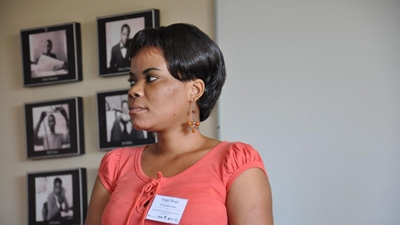GRAHAMSTOWN, February 17, 2012 -- A picture may well be worth a thousand words, but to 15 African journalists from Kenya, Mozambique, South Africa, Tanzania, Zambia, and Zimbabwe attending a “Fiscal Literacy” boot camp at Rhodes University in South Africa, it was the numbers that offered them new angles on how to write better budget stories, pursue leads, and convince skeptical editors about the value of budget reporting.
The two-day boot camp, held January 30-31 in Grahamstown, brought together business and economics journalists to help build shared literacy about national budget cycles, the important role of public financial management in national development, and how new online tools such as “Open Data” portals can both empower them to write superior, fact-based stories and to track the efficiency and efficacy of public investments.
The boot camp was conceptualized and co-convened by Craig Hammer of World Bank Institute’s Global Media Development program and Chris Kabwato, Director of the Reporting Development Network Africa (rDNA) at Rhodes University’s School of Journalism and Media Studies. It was jointly implemented by World Bank Africa Region Strategic Communications (AFRSC) and the Controller’s Office.
In an overarching presentation, Gert Van der Linde, Pretoria-based World Bank lead public financial management specialist, gave participants a tour of the horizon of national budget cycles and processes. He helped demystify arcane terminology, showing journalists that behind the numbers lay compelling human-interest stories about the impacts of changes in fiscal stances, the tackling of fruitless and wasteful expenditures, and assessment of service delivery. Gert has had extensive experience with the topic; at age 34, he was appointed Accountant General of South Africa’s first democratic government after the fall of apartheid in 1994.
A tutorial on how to use “Open Budget” portals followed next. Armed with little more than an iPhone, Prasanna Lal Das from the Controller’s Office demonstrated the power of “Open Data” apps to the journalists, showing them how they could get accurate, up-to-date country-level macro-economic information right in the palms of their hands.
A robust Q&A followed. When a participant asked about the voting structure at the Bank, a few button pushes were all that were needed to provide precise answers on the voting structure of the Bank’s shareholders.
Participants sounded a strong vote of confidence, both about the idea of holding the workshop and the need to gain exposure to new tools to help strengthen reporting capability.
“Institutions of public finance and budgets are a topic of great importance to Africa,” said Lerato Tsebe, a reporter with e-TV, South Africa, speaking on behalf of all participants. “There is no doubt that the knowledge shared with us will change our approach to economic reporting for the better.”
The presentation “Finding the Story on the National Budget” by Derek Luyt of the Centre for Social Accountability was a highlight of the agenda. Reg Rumney, Director of the Centre for Economics Journalism in Africa spoke about the importance of appreciative inquiry and good practices in covering the economy. Boot camp co-host Craig Hammer (WBI) walked participants through a full procurement process, and challenged participants to identify key entry points for investigation. Joel Kolker (WBI) spoke about how open aid, open governance and open knowledge were coming together for a new approach to capacity development. Sarwat Hussain (AFRSC) gave an overview of the regional strategy “Africa’s Future and the World Bank’s Support to It” and how Open Data is central to its implementation.
“The workshop was an eye opener for me,” exulted Angel Navuri, a reporter with The Guardian, Tanzania, expressing the hope that similar workshops could be held across the African continent. “At our outlet it is mandatory for us to share experiences so I look forward to briefing my newsroom colleagues about the wealth of information that I have gained here.”

